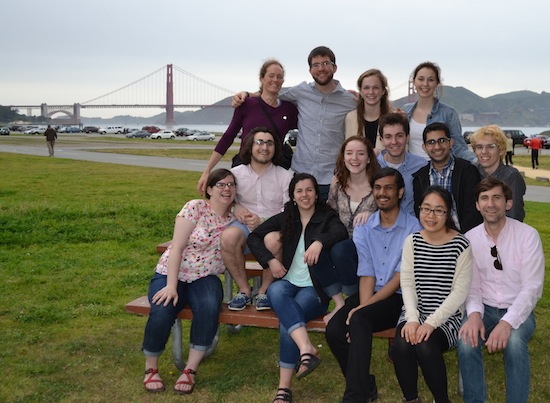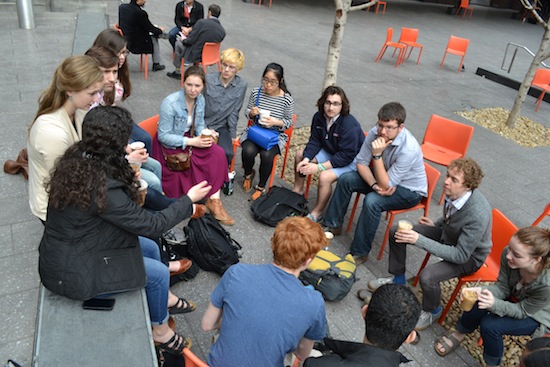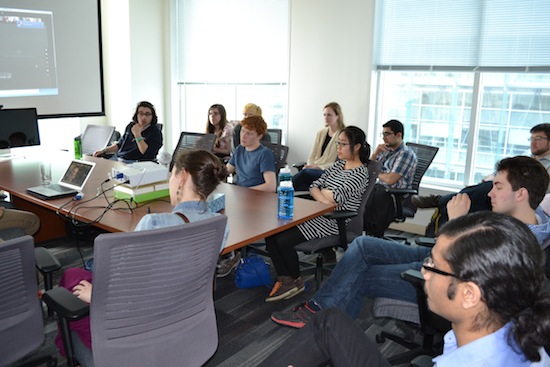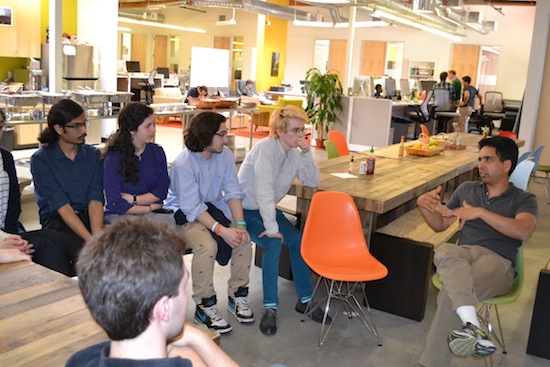The following post was written by Mallory Keller ’17, who just returned from the Benton Scholars’ spring break trip to Silicon Valley. An aspiring educator, Mallory reflects on the future of higher education and the importance of building community.
I started this trip doubtful about the future of online education. For almost a year, the Benton Scholars program has focused on online education in a university setting; we took online courses ourselves, then hosted speakers who are leaders in the field of online education. We are even designing and participating an online class for Colgate University–working together to see if it is possible for a small, liberal arts university to exist online, and in what capacity. There was a wide range of opinions and experiences with online education across the group of us who went on the trip and, at least for myself, I was hoping this trip would change my opinion.
Our first visit was to Minerva, an online institution that opened this year, that aspires to change the concept of an university. Minerva felt very much like a start-up, which at least for myself, is not something I want to feel from my university. Maybe it is the social construct that has been engraved in my brain since I was young, but I still view a university as a campus with huge, beautiful buildings with students lounging on the quad, throwing a frisbee around. To enroll in a school like Minerva, you have to be able to take risks, and I am not willing to do that with my education. The next day we visited Khan Academy and were able to sit down and talk with Sal Khan, the founder. We all had read his book, The One World Schoolhouse, and we were full of questions to ask him. We discussed the future of online education, and I feel like the conclusion of the discussion was that online education is a supplement to what a student learns in the classroom, but it cannot replace the physical classroom.
While some online spaces may foster this, the one thing that I value most in my education, and the thing that I find missing in online education, is the sense of community that is created on a campus. There is a bond that is formed from being in a physical space with the same people day after day, which I do not think exists online. While you can be logged-on and participating in discussions at the same time as others, you are in different physical spaces, like your home, a coffee shop, or the library. The importance of community was shown through this trip as well. At the end of their freshman year, the Benton Scholars’ freshman class takes a trip together abroad, so I was already pretty close with the other sophomores on this trip. However, there were freshmen and seniors on the trip that I was not as close with, and I enjoyed that we were able to get to know each other more during the four days. While the purpose of this trip was to learn about online education, I think it also helped create a greater sense of community in the Benton Scholar program.







